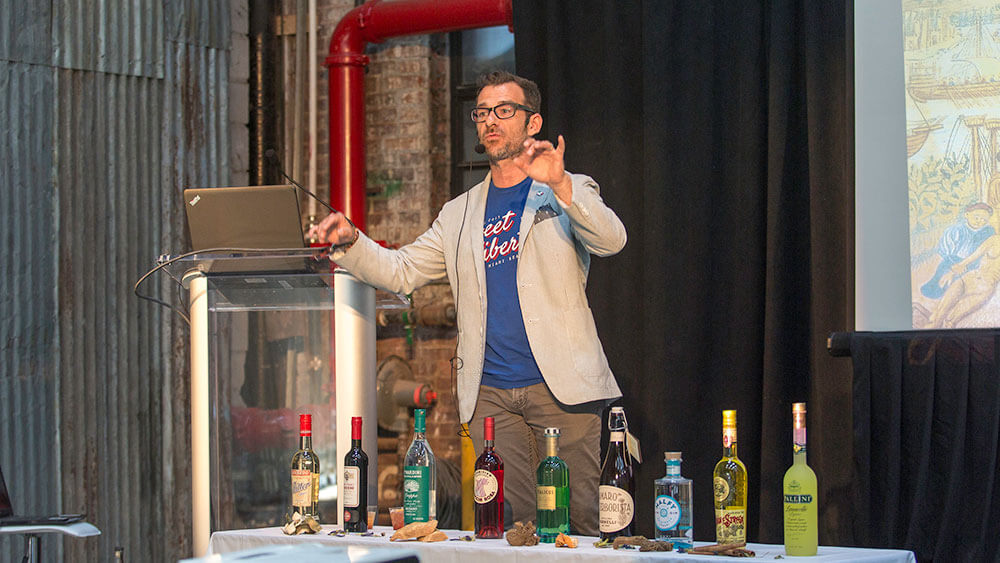
Kellie Shevlin of the Craft Beverage Expo says, “Your employees need to be nimble.” The expo, shown above, launched in 2014.
Several years ago, the executive director of an association was interviewed at an industry event and was asked, “How will you promote and celebrate the 75th anniversary of the organization at your upcoming trade show?” His response has guided my philosophy for event planning and marketing ever since. Essentially, he said, “We’re not doing anything to mark the occasion.” He went on to explain that rather than spotlighting the past, he and his team treat each year’s trade show and conference like a launch and build in new features and benefits that will make it feel brand new and totally relevant to today’s industry.
To build on that philosophy, I’ve asked my network of clients, colleagues, and friends who have launched events — and marketed existing ones — for advice that all organizers can use to make sure their events stay fresh, regardless of how long they’ve been in existence.
Kellie Shevlin, Executive Director of Craft Beverage Expo

Kellie Shevlin
One thing that’s important when managing an event is choosing the right staff. For a launch in particular, but also for established events, your employees need to be nimble, able to wear several hats, and comfortable being uncomfortable. Everything is going to be a little harder on a launch — finding a venue, securing speakers, selling booth space — so you have to find staff that like a good challenge and can also handle rejection.
Those also are desirable traits to have in staff working on an established show, as those who are comfortable taking risks might be more willing to go after new markets, approach prospective new exhibitors, and experiment with new marketing channels.
In the same way that those of us who have launched events have done due diligence to assess needs, event organizers should look at their established events to evaluate whether or not they are still fulfilling a need for their attendees and exhibitors — and be willing to make hard changes, if necessary. At the same time, they should look at any underserved ancillary markets that would benefit from participation in their events and find ways to bring them in.
Read a Convene interview with Kellie Shevlin
David Audrain, CEO, Exposition Development Company Inc.

David Audrain
Some of the factors we consider when evaluating whether or not to launch a new event should also be considered by organizers of existing events as they begin the strategic planning process for the next year. For instance, we want to ensure that the market is large enough for the event we envision, that we have a clear competitive differentiator, that we have champions — partners, associations, media, board members, etc. — that are connected to the market, and that we can identify, find, and connect with enough prospective exhibitors and attendees to be successful.
Organizers who demonstrate an entrepreneurial spirit, regardless of how long their events have been in existence, are the ones who are usually the most successful. These are the organizers who are willing to try almost anything to enable their events to grow. They don’t discard ideas because they’ve been tried before — or because they haven’t been tried before. They allow their teams to stretch themselves and to try new ideas, even if they fail sometimes. If you are afraid of failure, that creates limits to your success and the growth of your events.
Britton Jones, Chairman and CEO, NXT Events Media Group
Sharon Enright, President and COO, NXT Events Media Group

Britton Jones
With a new event, you can never do enough vetting. It’s important to test your premise by talking to as many prospective attendees and exhibitors as you can. If your ideas aren’t resonating, it’s going to be hard to be successful. And while it’s great to engage consultants and research firms to get their summaries and analyses, there’s no substitute for going directly to the source and hearing their feedback in their own words — especially if you’re trying to get a read on how dissatisfied they may be with the current solution or how excited they may be about a new approach.
This same advice applies to existing events, as well. Don’t underestimate the importance of ongoing communication with the target audience and how valuable your current and prospective participants can be in terms of vetting new ideas and communication strategies.

Sharon Enirght
There’s definitely a temptation among organizers to put successful events on autopilot and to avoid fixing what ain’t broke. You have to resist this and view every event as if it doesn’t have even one guaranteed attendee or exhibitor.
So, whether you are planning your next event launch or marketing its 75th annual edition (or are somewhere in between), as you begin the planning process, think of yourself as an entrepreneur. Consider the advice above and ask yourself, “If I were to launch a brand-new event that.competed with mine, what would it look like?” Then blast off from there.
Kimberly Hardcastle-Geddes is the owner and president at mdg, a full-service marketing and public relations firm specializing in B2B events.
Break Free of Past Strategies

Marie Browne
Marie Browne, group vice president, Launchpad, Reed Exhibitions, said it’s key to scan the competitive landscape when launching a new event or marketing an existing one.
“We look not only for white space in the market, e.g., gaps in geographic coverage, target markets that are being underserved, etc., but also for vulnerability among competitors, which can open up opportunities,” Browne said.
“Also, we try to break free of a mindset dominated by what has worked in the past. Instead, we start with a clean slate and use research-informed projections to guide our decisions. Furthermore, the event team has to be comfortable with debates (that can sometimes be heated) about event positioning and strategy. Finally, we’re big believers in working with industry consultants, not only for strategic planning, but also for testing marketing concepts and messaging platforms.”
